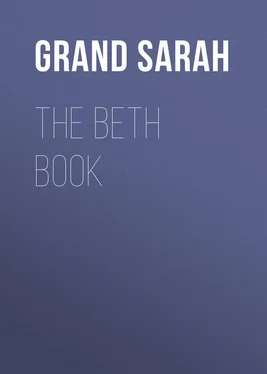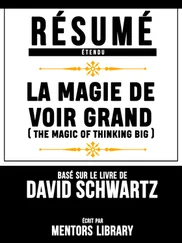Sarah Grand - The Beth Book
Здесь есть возможность читать онлайн «Sarah Grand - The Beth Book» — ознакомительный отрывок электронной книги совершенно бесплатно, а после прочтения отрывка купить полную версию. В некоторых случаях можно слушать аудио, скачать через торрент в формате fb2 и присутствует краткое содержание. Жанр: literature_19, foreign_antique, foreign_prose, Биографии и Мемуары, на английском языке. Описание произведения, (предисловие) а так же отзывы посетителей доступны на портале библиотеки ЛибКат.
- Название:The Beth Book
- Автор:
- Жанр:
- Год:неизвестен
- ISBN:нет данных
- Рейтинг книги:4 / 5. Голосов: 1
-
Избранное:Добавить в избранное
- Отзывы:
-
Ваша оценка:
- 80
- 1
- 2
- 3
- 4
- 5
The Beth Book: краткое содержание, описание и аннотация
Предлагаем к чтению аннотацию, описание, краткое содержание или предисловие (зависит от того, что написал сам автор книги «The Beth Book»). Если вы не нашли необходимую информацию о книге — напишите в комментариях, мы постараемся отыскать её.
The Beth Book — читать онлайн ознакомительный отрывок
Ниже представлен текст книги, разбитый по страницам. Система сохранения места последней прочитанной страницы, позволяет с удобством читать онлайн бесплатно книгу «The Beth Book», без необходимости каждый раз заново искать на чём Вы остановились. Поставьте закладку, и сможете в любой момент перейти на страницу, на которой закончили чтение.
Интервал:
Закладка:
"What is scan?"
"It won't fit into the verse, you know."
"The beautiful bare colour-of-tarnished-silver bosom of the shore," she sang out glibly; then agreed, with a wise shake of her head, that the phrase was impossible; and recurred to another point of interest, as was her wont – "What is copyright?"
Before he could answer, however, Mrs. Caldwell had swooped down upon them. She had seen him from the cliff talking to Beth, and hastened down the steps in her hot-tempered way, determined to rebuke the man for his familiarity, and heedless of Aunt Victoria, who had made an effort to stop her.
"May I ask why you are interfering with my child, sir?" she demanded.
The man in the sailor-suit raised his hat and bowed low.
"Excuse me, madam," he said. "I could not possibly have supposed that she was your child."
Mrs. Caldwell coloured angrily as at an insult, although the words seemed innocent enough. When he had spoken, he turned to Beth, with his hat still in his hand, and added – "Good-bye, little lady. We must meet again, you and I – on the beautiful bare brown bosom of the shore."
Beth's sympathy shone out in a smile, and she waved her hand confidingly to him as he turned away. Mrs. Caldwell seized her arm and hurried her up the steps to Aunt Victoria, who stood on the edge of the cliff blinking calmly.
"Imagine Beth scraping acquaintance with such a common-looking person!" Mrs. Caldwell cried. "You must never speak to him or look at him again – do you hear? I wonder what taste you will develop next!"
"It is a pity that you are so impetuous, Caroline," Aunt Victoria observed quietly. "That gentleman is the Count Gustav Bartahlinsky, who may perhaps be considered eccentric here, where noblemen of great attainments and wealth are certainly not numerous; but is hardly to be called common-looking."
Beth saw her mother's countenance drop.
"Then I may speak to him," she decided for herself. "What's a copyright, mamma?"
"Oh, don't bother, Beth!" Mrs. Caldwell exclaimed irritably.
When they went home, Bernadine clamoured for food, and her mother gave her a piece of bread. They were to have dinner at four o'clock, but no luncheon, for economy's sake. Beth was hungry too, but she would not confess it. What she had heard of their poverty had made a deep impression on her, and she was determined to eat as little as possible. Aunt Victoria glanced at Bernadine and the bread as she went up to her room, and Beth fancied she heard her sigh. Was the old lady hungry too, she wondered, and her little heart sank.
This was Beth's first exercise in self-denial, but she had plenty of practice, for the scene was repeated day after day.
The children being free, had to amuse themselves as best they could, and went out to play in the little garden at the back of the house. Mrs. Caldwell's own freedom was merely freedom for thought. Most of the day she spent beside the dining-room table, making and mending, her only distraction being an occasional glance through the window at the boughs of the apple-trees which showed above the wall opposite, or at the people passing. Even when teaching the children she made, mended, and pursued her own thoughts, mapping out careers for her boys, making brilliant matches for Mildred and Bernadine, and even building a castle for Beth now and then. She made and mended as badly as might be expected of a woman whose proud boast it was that when she was married she could not hem a pocket-handkerchief; and she did it all herself. She had no notion of utilising the motive-power at hand in the children. As her own energy had been wasted in her childhood, so she wasted theirs, letting it expend itself to no purpose instead of teaching them to apply it. She was essentially a creature of habit. All that she had been taught in her youth, she taught them; but any accomplishment she had acquired in later life, she seemed to think that they also should wait to acquire. She had always dressed for dinner; so now, at half-past three every day, she put away her work, went into the kitchen for some hot water, which she carried upstairs herself, called the children, and proceeded to brush her own hair carefully, and change her dress. She expected the children to follow her example, but did not pay much attention to their proceedings, and they, childlike, constantly and consistently shirked as much of the ceremony as possible. If their mother caught them with unwashed hands and half-brushed hair, she thumped them on the back, and made them wash and brush; but she was generally thinking about something else, and did not catch them. The rite, however, being regularly although imperfectly performed, resulted in a good habit.
There was another thing too for which Beth had good reason to be grateful to her mother. During winter, when the days were short, or when bad weather made it impossible to go out on summer evenings, Mrs. Caldwell always read aloud to the children after tea till bed-time. Most mothers would have made the children read; but there was a great deal of laxity mixed with Mrs. Caldwell's harshness. She found it easier to do things herself than to make the children do them for her. They objected to read, and liked to be read to, so she read to them; and as, fortunately, she had no money to buy children's books, she read what there were in the house. Beth's ear was still quicker than her eye, and she would not read to herself if she could help it; but before she was fourteen, thanks to her mother, she knew much of Scott, Jane Austen, Dickens, Thackeray, Bulwer Lytton, and even some of Shakespeare, well; besides such books as "The Woman in White," "The Dead Secret," "Loyal Heart; or, The Trappers," "The Scalp Hunters," and many more, all of which helped greatly to develop her intelligence.
CHAPTER XV
During the next two years, Beth continued to look on at life, with eyes wide open, deeply interested. Her mind at this time, acting without conscious effort, was a mere photographic apparatus for the registration of impressions on the brain. Every incident stored and docketed itself somewhere in her consciousness for future use, and it was upon this hoard that she drew eventually with such astonishing effect.
Rousseau in "Emile" chose a common capacity to educate, because, he said, genius will educate itself; but even genius would find its labours lightened by having been taught the use of some few tools, such as are supplied by the rudiments of a conventional education. Beth was never taught anything thoroughly; very few girls were in her day. A woman was expected at that time to earn her livelihood by marrying a man and bringing up a family; and, so long as her face was attractive, the fact that she was ignorant, foolish, and trivial did not, in the estimation of the average man, at all disqualify her for the task. Beth's education, at this most impressionable period of her life, consisted in the acquisition of a few facts which were not made to interest her, and neither influenced her conduct nor helped to form her character. She might learn in the morning, for instance, that William the Conqueror arrived 1066, but the information did not prevent her being as naughty as possible in the afternoon. One cannot help speculating on how much she lost or gained by the haphazard of her early training; but one thing is certain, had the development of her genius depended upon a careful acquisition of such knowledge as is to be had at school, it must have remained latent for ever.
As it was, however, being forced out into the life-school of the world, she there matriculated on her own account, and so, perhaps, saved her further faculty from destruction. For theoretical knowledge would have dulled the keenness of her insight probably, confused her point of view, and brought in accepted commonplaces to spoil the originality of her conclusions. It was from practical experience of life rather than from books that she learnt her work; she saw for herself before she came under the influence of other people's observations; and this was doubtless the secret of her success; but it involved the cruel necessity of a hard and strange apprenticeship. From the time of their arrival in Rainharbour she lived three lives a day – the life of lessons and coercion which was forced upon her, an altogether artificial and unsatisfactory life; the life she took up the moment she was free to act for herself; and a life of endless dreams, which mingled with the other two unwholesomely. For the rich soil of her mind, left uncultivated, was bound to bring forth something, and because there was so little seed sown in it, the crop was mostly weeds.
Читать дальшеИнтервал:
Закладка:
Похожие книги на «The Beth Book»
Представляем Вашему вниманию похожие книги на «The Beth Book» списком для выбора. Мы отобрали схожую по названию и смыслу литературу в надежде предоставить читателям больше вариантов отыскать новые, интересные, ещё непрочитанные произведения.
Обсуждение, отзывы о книге «The Beth Book» и просто собственные мнения читателей. Оставьте ваши комментарии, напишите, что Вы думаете о произведении, его смысле или главных героях. Укажите что конкретно понравилось, а что нет, и почему Вы так считаете.












